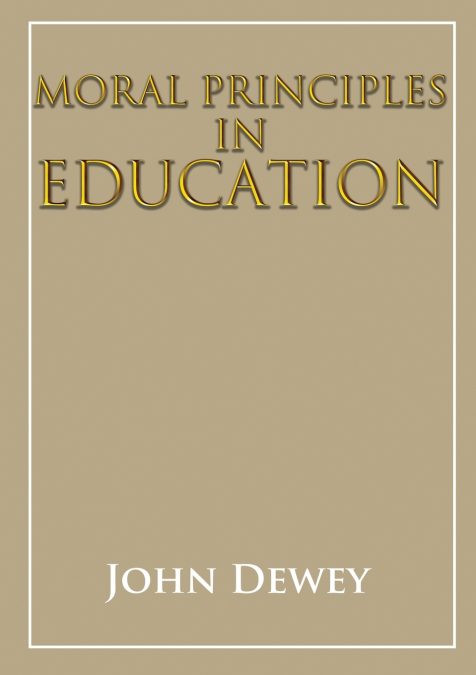
 Librería 7artes
Librería 7artes
 Donde los libros
Donde los libros
 Librería Elías (Asturias)
Librería Elías (Asturias)
 Librería Kolima (Madrid)
Librería Kolima (Madrid)
 Librería Proteo (Málaga)
Librería Proteo (Málaga)
Moral Principles In Education John DeweyAn English contemporary philosopher has called attention to the difference between moral ideas and ideas about morality. 'Moral ideas' are ideas of any sort whatsoever which take effect in conduct and improve it, make it better than it otherwise would be. Similarly, one may say, immoral ideas are ideas of whatever sort (whether arithmetical or geographical or physiological) which show themselves in making behavior worse than it would otherwise be and non-moral ideas, one may say, are such ideas and pieces of information as leave conduct uninfluenced for either the better or the worse. Now 'ideas about morality' may be morally indifferent or immoral or moral. There is nothing in the nature of ideas about morality, of information about honesty or purity or kindness which automatically transmutes such ideas into good character or good conduct. This distinction between moral ideas, ideas of any sort whatsoever that have become a part of character and hence a part of the working motives of behavior, and ideas about moral action that may remain as inert and ineffective as if they were so much knowledge about Egyptian archæology, is fundamental to the discussion of moral education. The business of the educator-whether parent or teacher-is to see to it that the greatest possible number of ideas acquired by children and youth are acquired in such a vital way that they become moving ideas, motive-forces in the guidance of conduct. This demand and this opportunity make the moral purpose universal and dominant in all instruction-whatsoever the topic. Were it not for this possibility, the familiar statement that the ultimate purpose of all education is character-forming would be hypocritical pretense for as every one knows, the direct and immediate attention of teachers and pupils must be, for the greater part of the time, upon intellectual matters. It is out of the question to keep direct moral considerations constantly uppermost. But it is not out of the question to aim at making the methods of learning, of acquiring intellectual power, and of assimilating subject-matter, such that they will render behavior more enlightened, more consistent, more vigorous than it otherwise would be. 3